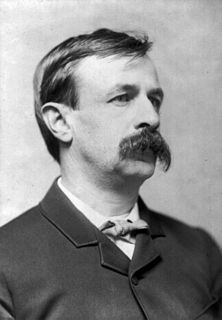A Quote by Edward Bellamy
Competition, which is the instinct of selfishness, is another word for dissipation of energy, while combination is the secret of efficient production.
Related Quotes
Competition always tends to bring about the most economical and efficient method of production. Those who are most successful in this competition will acquire more capital to increase their production still further; those who are least successful will be forced out of the field. So capitalist production tends constantly to be drawn into the hands of the most efficient.
We want to see...the efficient production and use of energy, so that the products we produce and the way we produce them pose no threat to the world's natural environment...economic development...so that more and more of the world's population can enjoy...the things which the energy industry supplies...(and) a society in which ideas and knowledge move freely.
We need to realize that the economic situation between Mexico and the United States is not just one in which we trade with one another. We make things together. We have shared production platforms. Cross-border trade is part of a single production process, and while apparently the Trump administration will seek to re-examine elements of that production platform, it is what it is and won't be easily dismantled.
Under a socialist mode of production all personal incentives which selfishness provides under capitalism are removed, and a premium is put upon laziness and negligence. Whereas in a capitalist society selfishness incites everyone to the utmost diligence, in a socialist society it makes for inertia and laxity.
Selfishness is like a disease that suffocates our capacity to love. While love asks us to deny ourselves for the sake of another, selfishness demands we put ourselves first at their expense. When we choose to be self-centered, we become less kind and content—more needy, sensitive, and demanding. More unsatisfiable. Moodiness and impatience, laziness and irresponsibility, are only selfishness in disguise.
Collectivists would have you believe that individualism is merely another word for selfishness, because individualists oppose welfare and other forms of coercive redistribution of wealth, but just the opposite is true. Individualists advocate true charity, which is the voluntary giving of their own money, while collectivists advocate the coercive giving of other people's money; which, of course, is why it is so popular.
The ideal is unnatural naturalness, or natural unnaturalness. I mean it is a combination of both. I mean here is natural instinct and here is control. You are to combine the two in harmony. Not if you have one to the extreme, you'll be very unscientific. If you have another to the extreme, you become, all of a sudden, a mechanical man No longer a human being. It is a successful combination of both. That way it is a process of continuing growth.
Energy, health care and education are just three examples of areas in which information and information management are critically important. How are we using our energy? What appliances in homes or business are consuming the most energy? When do they consume it? Can the load be shifted? How efficient are these devices?


































